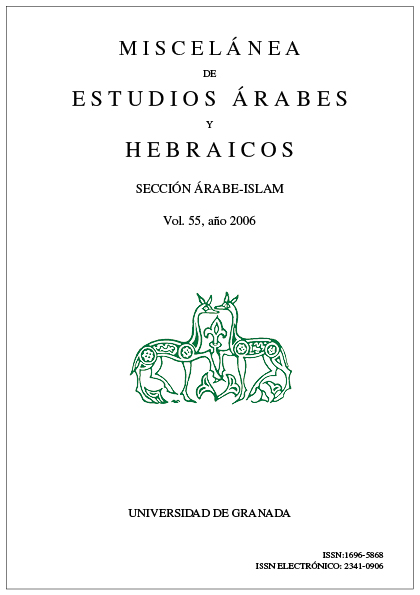Islamismo y liberación de la mujer: Ḥasan al-Turābī y el modelo sudanés
Palabras clave:
Islamismo, Feminismo, SudánResumen
Desde el surgimiento del movimiento islamista sudanés en la década de los cincuenta y, especialmente, desde los setenta, el islam político sudanés ha presentado un modelo teórico de “liberación islámica” de la mujer que ha conseguido algunos éxitos, como su participación en la esfera pública y su contribución a la expansión del movimiento, pero que en conjunto fracasó al intentar ser traducido a la realidad tras la llegada al poder del Frente Islámico Nacional en 1989.Descargas
Descargas
Publicado
Cómo citar
Número
Sección
Licencia
Los autores que publican en esta revista están de acuerdo con los siguientes términos:
1. Los autores conservan los derechos de autor y garantizan a la revista el derecho de ser la primera publicación del trabajo al igual que licenciado bajo una Creative Commons Attribution License que permite a otros compartir el trabajo con un reconocimiento de la autoría del trabajo y la publicación inicial en esta revista.
2. Los autores pueden establecer por separado acuerdos adicionales para la distribución no exclusiva de la versión de la obra publicada en la revista (por ejemplo, situarlo en un repositorio institucional o publicarlo en un libro), con un reconocimiento de su publicación inicial en esta revista.
3. Se permite y se anima a los autores a difundir electrónicamente (por ejemplo, en repositorios institucionales o en su propio sitio web) la versión publicada de sus trabajos (versión post-print del editor) o, en su defecto, el de la versión post-print del autor ya evaluada y aceptada. Esto puede dar lugar a intercambios productivos, así como a una citación más temprana y mayor de los trabajos publicados (Véase The Effect of Open Access).
4. La revista no se hace responsable de las opiniones vertidas por los autores.















